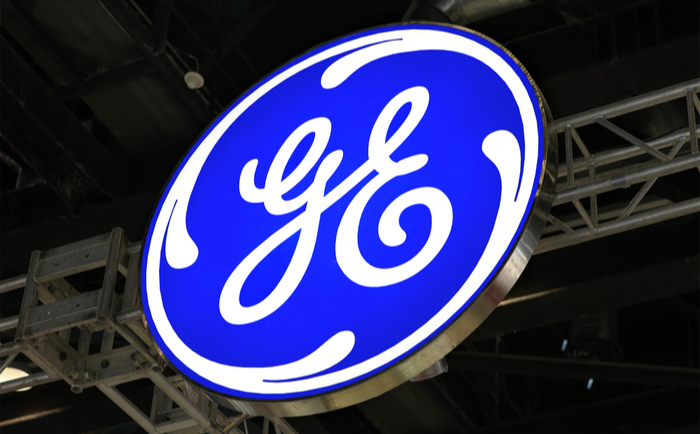With every passing day, leaders seem to constantly be popping up and issuing heartfelt public apologies for their own, or their organisation’s, latest misdemeanours and transgressions.
Whether it’s water firms apologising for sewage discharge, Elon Musk saying sorry after mocking a disabled Twitter employee, or the BBC’s excruciating about-face that saw Gary Lineker being reinstated as Match of the Day presenter, ‘sorry’ seems to be increasingly the easiest word to say.
Is the public apology the best route for leaders to take to make amends with shareholders? It’s true that apologies can be taken as evidence of potential liability and expressing guilt, remorse or self-criticism but, since the mid-1980s, attitudes towards apologies have changed.
In fact, there has been an explosion of apologies that have been used, in part, to defuse tension, avoid litigation and improve public standing. The leader’s ability to influence, motivate and enthuse others to contribute towards the effectiveness and success of the organisation is undoubted. A well-positioned ‘sorry’ from a leader is often an engineered political tactic, where every word matters as it becomes public record.
So, does a public apology always result in a positive outcome?
Context is crucial
It’s important to recognise from the outset that there’s no ‘on-size-fits-all’ apology and context is all important.
On the one hand, a willingness to apologise can be seen as a sign of character. On the other, expressing remorse too readily can sometimes be viewed as a sign of weakness, or interpreted as giving away one’s ‘power’.
Apologising may be uncomfortable and risky. A refusal to apologise can be wise, or result in a leader’s demise. Similarly, an apology that is too little, late, or insincere may do more harm than good. In addition, apologies which are interpreted as disingenuous and insincere simply add to the problem.
From a corporate perspective, counsel become involved and advise if any laws have been broken, and whether an apology will be construed as an admission of liability. If a decision is made not to apologise then clearly it becomes difficult to show any empathy with a perceivably wronged party.
Despite these concerns, apologies as a form of social exchange are growing internationally. When political leaders say sorry on behalf of their nation for grave wrongdoings of the past, or corporate leaders apologise for their organisation’s failures, they are fast becoming part of the internationally accepted landscape. Successful apologies can turn enmity into personal and business triumph.
Sorry… not sorry
In 2009, the CEO of Goldman Sachs, Lloyd Blankfein, apologised for the company’s role in helping to create the financial crisis. “We participated in things that were clearly wrong and had reason to regret … we apologise.”
He continued to be CEO until 2018, and then as senior chairman until his retirement in 2019. What was the value of this apology? The survival of Blankfein.
In 2010, BP CEO Tony Hayward, during the battle to contain the massive Gulf of Mexico oil spill, apologised for saying he wanted his ‘life back” in the midst of the environmental disaster and, within months, was forced to step down. His apology did little to re-establish confidence in the CEO or BP itself.
In April 2022, Boris Johnson publicly apologised for breaking Covid lockdown rules and was the first British leader to be fined for breaking the law. He said: “A gathering in the cabinet room, just before an important meeting on Covid strategy, could amount to a breach of the rules. That was my mistake, and I apologise for it unreservedly.”
By July 2022, Johnson, who had led the Conservatives to their most significant election victory since 1987, lost the support of his MPs and had to resign as party leader. Perhaps this apology opened the flood gates.
A high-stakes move
Clearly, given the potential for reputational loss and liability, a public apology is a high-stakes move.
Skilfully positioned apologies may be necessary, but can still fall short when it comes to achieving forgiveness. If the leader is not trusted, their apology will not work. If they are viewed as genuinely caring, they are more likely to be perceived as sincere.
Smart leaders recognise that a lack of preparedness can result in an apology that actually damages trust, reputation and respect.
Despite such insights, it is not unusual for leaders to become defensive and unwilling to apologise.
One reason for this is that all leaders have to learn to stand their ground and explain their motives and actions. Failing to do so can damage trust in the strategy being pursued by the organisation.
Resourceful leaders rarely cave in to their critics. They also don’t like to put themselves in situations of humiliation or risk. As a result, leaders don’t apologise often or lightly because to do so makes them appear vulnerable.
Expressing remorse must be for a good reason, and so leaders apologise under the following circumstances:
• The offence has a serious, widespread and enduring impact. For example, Pope Francis apologising for scandals facing the Catholic Church
• A personal or corporate transgression which makes it appropriate that the leader assumes responsibility
• The cost of the apology is lower than staying silent. Leaders apologise when they calculate ignoring the problem threatens relationships with critical stakeholders
• Doing so is likely to serve a particular purpose
How to apologise
Knowing when to make an apology is not enough. It is knowing why and how that makes the difference. To achieve this the leader:
• Acknowledges the wrongdoing, demonstrating an awareness of the pain that has been caused. Impactful apologies must address recipients’ feelings and not try to prove a point
• Accepts responsibility for their actions. After months of turmoil, Nike CEO, Mark Parker, apologised to employees for having continued to allow a poor workplace culture
• Displays genuine remorse for what has happened. Steve Smith, the disgraced former Australian Test cricket captain, delivered an emotional public apology for his role in a ball-tampering scandal in South Africa
• Commits to change, while assuring the issue will not be repeated. Founder and co-CEO of Blackberry, Mike Lazaridis, apologised for service outages, saying: “We’ve let many of you down. But let me assure you that we’re working around the clock to fix this.”
The way an apology is delivered matters almost as much, if not more, than its content. The key elements of a successful apology are:
• Timeliness
• Honesty and frankness
• Display of vulnerability
• Focus on the victim(s)
• Promise to change through actions
• Making amends to the victim
Are apologies trivial?
For some in the business community, apologising might seem a trivial concern but this attitude could not be more wrong.
There is a good reason for the number of leaders who are publicly apologising in line with an apparent increase in corporate transgressions. The key point to consider here is that a greater number of apologies leads to a reduction in effectiveness.
In 2015, Martin Winterkorn, CEO of Volkswagen AG, apologised for customers’ “broken trust” due to software disguising pollution emissions.
In 2019 Volkswagen’s CEO, Herbert Diess apologised for using a phrase that echoed a Nazi-era slogan, ‘Arbeit macht frei (work sets you free).’ Diess also apologised in 2020 to the company’s supervisory board for having made “inappropriate and wrong” statements. In 2020, the head of sales and marketing, Jürgen Stackmann and group head of diversity, Elke Heitmüller, apologised for a supposedly racist Volkswagen advertisement.
Despite this stream of apologies, Volkswagen’s reputation was already becoming damaged and, for some, beyond repair. Only their capability for high-quality car manufacturing kept the company going.
Meta’s Mark Zuckerberg (pictured) also has a long history of apologising. In 2003, he apologised at Harvard, “I apologise for any harm done as a result of my neglect.” In 2006, “We really messed this one up.” In 2007, “We simply did a bad job. I apologise for it.” In 2010, “Sometimes we move too fast.” In 2011, “I admit … that we’ve made a bunch of mistakes,” and in 2017 following Facebook’s alleged manipulation of election data, “I ask for forgiveness. I will work to do better.”
The net outcome is a lack of belief in Zuckerberg’s capability for governance oversight of his board and organisation.
Only the penitent may pass?
In Judeo-Christian cultures, the predominant expectation is that wrongdoers need to apologise. It is held that repentance has the power to heal broken relationships, reconcile people in irreconcilable situations, restore trust, and even prevent war.
Apologies uttered by injurers and wrongdoers to their victims, with the intention that they will be understood through expressions of remorse, goes back to biblical times.
In Asia, the saving of ‘face’ and preservation of one’s social image, reputation, dignity and honour, is at a social premium. It also makes apologising a far more complex process. In Asian cultures, ‘face’ is about how one treats others. Face can be given or earned, as well as taken away or lost. The giving and losing of face is taken so seriously in China that apology companies employ surrogates to provide explanations and express remorse so that leaders do not publicly lose face.
Acknowledging a transgression, seeking forgiveness, and making things right can have unpredictable outcomes.
After due consideration, leaders apologise when it serves a strategic or moral purpose. The strategic function is rooted in individual, institutional or intergroup self-interest. A moral purpose apology is extended because it is ‘the right thing to do’. Apologies are prompted by fear, guilt, or love, and by calculating personal or professional gain. These decisions are, in turn, shaped by culture, context, and gender. Despite all of this, and in line with the present-day expectation for apologies, people are still attracted to leaders who exhibit strength and confidence, or even express anger.
Apologies that work are carefully crafted to do so. So much depends on what is appropriate to the context and consequences of doing so, or not.
After a week of political and religious violence in 2018, US president Donald Trump did not apologise for whipping up crowds and feeding online hate, despite expectations from the media for him to do so.
Doing so could have led to his political demise. Instead, Trump continues to be both celebrated and ridiculed for never apologising.
Despite criticism for the war in Iraq, President George W Bush never apologised or admitted anything more than a single ‘miscalculation’. Overall, this approach worked for him. No leader was held to account for the deception surrounding the ‘weapons of mass destruction’ debacle.
Before making a public apology, think through desired outcomes. Sincerely delivered and made with purpose, it could just work.
Andrew Kakabadse is professor of governance and leadership, and Nada Kakabadse is professor of policy, governance and ethics, both at Henley Business School.






